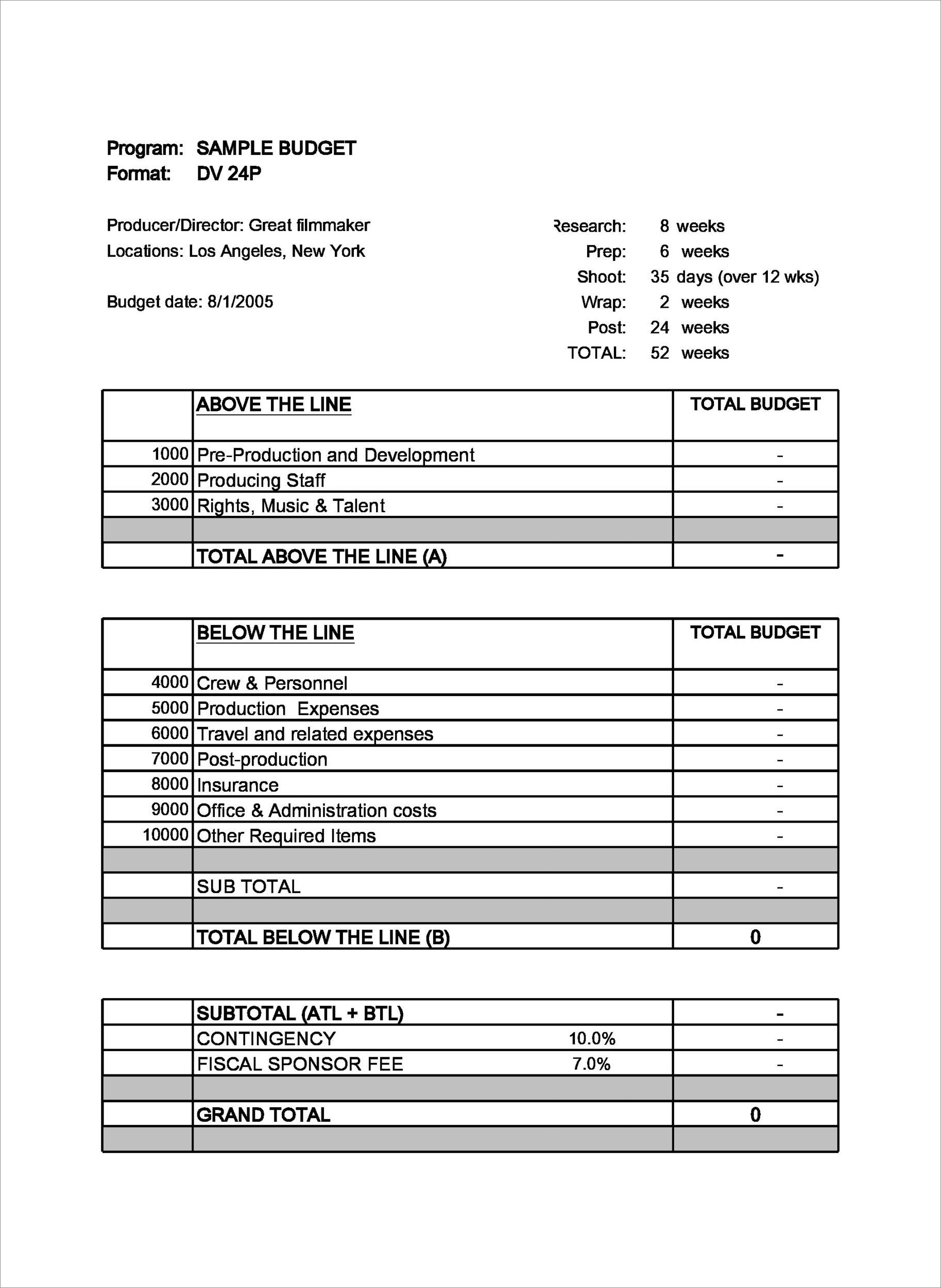A film budget is a detailed financial plan that outlines the estimated costs of producing a movie. It serves as a roadmap for the entire production process, ensuring that all necessary expenses are accounted for and managed effectively. A well-prepared film budget helps filmmakers make informed decisions, secure funding, and ultimately bring their vision to life on the screen.
Why is a Film Budget Important?
A film budget is crucial in ensuring the success of a movie production. It provides a clear understanding of the financial resources required, helps in allocating funds to different departments, and allows for effective cost control. Without a well-planned budget, filmmakers may face unexpected expenses, financial constraints, and potential delays in production, which can compromise the overall quality of the film.
How to Create a Film Budget
Creating a film budget involves several key steps:
1. Research and Development
Before diving into the budgeting process, filmmakers need to thoroughly research and develop their projects. This includes writing a script, conducting location scouting, casting, and identifying potential crew members. Researching these elements will help in estimating costs accurately.
2. Breakdown the Script
Once the script is finalized, it is essential to break it down scene by scene. This process helps identify the various elements involved in each scene, such as props, costumes, locations, and special effects. By breaking down the script, filmmakers can estimate the costs associated with each scene and allocate the budget accordingly.
3. Identify Key Expenses
During the breakdown process, it is crucial to identify the key expenses that make up the film budget. These expenses include pre-production costs (script development, casting, location scouting), production costs (cast and crew salaries, equipment rental, catering), and post-production costs (editing, visual effects, sound design).
4. Research Industry Standards
It is essential to research industry standards and benchmarks to gain a better understanding of typical costs associated with filmmaking. This research helps in setting realistic budget goals and ensures a comprehensive and accurate financial plan.
5. Create a Budget Spreadsheet
Using budgeting software or a spreadsheet program, filmmakers can create a detailed budget that includes all the identified expenses. The budget should be organized by departments, such as production, art, costumes, and post-production, with specific line items for each expense category.
6. Allocate Funds
Once the budget is created, filmmakers need to allocate funds to each department based on the estimated costs. It is crucial to prioritize essential elements and allocate funds accordingly to ensure that the film’s creative vision is maintained while staying within budget constraints.
7. Monitor and Adjust
Throughout the production process, it is important to monitor the budget regularly. Filmmakers should compare actual expenses to the budgeted amounts and make adjustments as necessary. This ongoing monitoring allows for better cost control and helps in identifying potential issues or areas where cost savings can be made.




Top Tips for Managing Film Budgets
1. Plan for Contingencies. It is crucial to allocate a portion of the budget for unexpected expenses that may arise during production.
2. Negotiate and Collaborate. Building relationships with vendors and suppliers can lead to cost savings through negotiation and collaboration.
3. Be Realistic. Setting realistic budget goals based on research and industry standards is essential to avoid financial strain.
4. Track Expenses. Keep detailed records of all expenses to ensure accurate budget monitoring and reporting.
5. Prioritize Spending. Allocate funds to essential elements first and find creative ways to cut costs in non-essential areas.
6. Consider Crowdfunding. Utilize crowdfunding platforms to raise additional funds and engage with potential investors and supporters.
Conclusion
Creating and managing a film budget is a complex yet vital aspect of the movie production process. It requires careful research, planning, and ongoing monitoring to ensure that financial resources are allocated efficiently. By following the steps outlined in this guide and implementing effective budget management strategies, filmmakers can increase their chances of producing a successful and memorable film.
Film Budget Template Excel – Download
